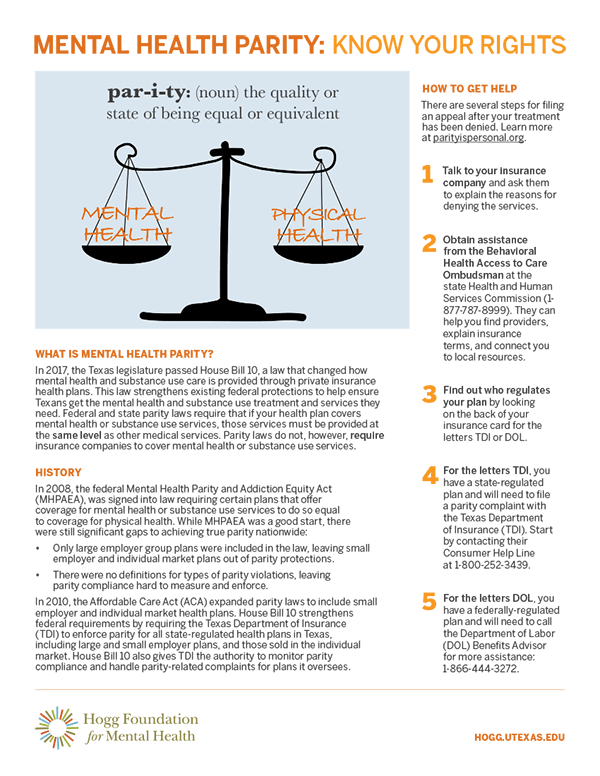The Only Guide to How Does Body Image Affect Mental Health
Attempt setting limitations on when you give up utilizing your gadgets before bed. Speak with a mental health professional if you believe that your sleep problems may be triggered by or contributing to a mental health condition. Anxiety, stress and anxiety, and other psychiatric conditions can interfere with sleepbut resolving your sleep issues might likewise have a favorable influence on your mental symptoms.
The unfavorable results of poor sleep are well-documented, consisting of the profound impact on psychological health and psychological well-being. Poor sleep might frequently be a symptom or consequence of an existing mental condition, however sleep issues are also thought to trigger or add to the beginning of different mental disorders consisting of depression and stress and anxiety.
Making lifestyle changes that promote great sleep can assist, but talk with your medical professional if your sleep issues continue. An underlying sleep condition or a medical condition might be contributing in your sleep problems.
Sleep deprivation has many unfavorable short-term effects. It typically makes us irritable and less productive the next day. It weakens concentration and slows our response time. We generally feel it when we didn't get enough sleep and require to capture up the following night. However persistent sleep deprivation has long-term results that might be a lot more considerable.
Things about Mental Institution When Child Affect Firearm Adult
The medical community has actually long wrestled with the chicken-or-the-egg relationship between sleep loss and psychological health. After all, there's a vicious cycle at work. When we're anxious, for circumstances, it's more difficult to get quality sleep, which then just increases our level of stress and anxiety. And the overlap in between bad sleep practices and mental distress is so prevalent, it can be difficult to unload which leads to which.

population. The relationship in between insomnia and mental disease is frequently explained as "bidirectional." Sleep concerns and psychological illness also intensify each other, producing circumstances where it's increasingly tough to treat both. While causation is often tricky to decipher with mental health issue, a growing body of research shows that sleep deprivation is a strong predictor of state of mind conditions.
Professionals have actually found that in sleep-deprived patients, the amygdala, a part of the brain that processes emotion, ends up being "rewired" in a manner that lowers our rational response to external events. These people have huge emotional swings, going from distressed to giddy in minutes. Sleep deprivation can even produce symptoms similar to those of schizophrenia.
In a variety of research studies, sleeping disorders represented a "substantial danger" for the advancement of depressive disorders. Encouragingly, investigators have actually found that people with depression who improve their sleep experience a quicker response from antidepressants. Specialists have actually discovered that cognitive behavior modification created to treat insomnia Addiction Treatment Center has the result of reducing depression symptoms.
How Dietary Affect Mental Health - Questions
But for many individuals, countering sleep deprivation is just a matter of committing to enhanced sleep health. Taking sleep seriously and making a few changes to your nighttime routine is typically enough to return on track. And returning to appropriate sleep is a preventive tool versus anxiety and other psychological health problems.
Keep your bed room dark and not utilizing electronic devices as soon as there; the light discharged by screens puzzles your body's internal clock. Exercise routine exercise has countless health advantages, consisting of the facilitation of sleep patterns. Avoid alcohol, caffeine, and nicotine in the hours before bed whenever possible. Get natural light throughout the day, particularly in the early morning.

In time, it can cause mental health concerns and other medical problems. Attending to chronic insomnia prior to it starts to affect your daily life is a major piece of good preventive self-care.
Not getting sufficient sleep skews our capability to manage our feelings. how does stresss diigo.com/0je2ah affect our mental health. In the long run, this can increase our threat of establishing a psychological health condition. In turn, conditions such as anxiety and anxiety might cause more sleep interruption. Thankfully, there are proven ways to enhance sleep quality and break out of this vicious circle.
Indicators on How Does Bullying Affect Mental Health You Need To Know
More than 400 years ago, William Shakespeare described the gift of sleep and the distress of insomnia:O sleep! O mild sleep! Nature's soft nurse, how have I frighted thee, That thou say goodbye to wilt weigh my eyelids down And steep my senses in forgetfulness? Henry IV, Part 2Shakespeare's description of sleep as "nature's soft nurse" was closer to the reality than he could have understood.
Getting a great night's rest even underpins our capability to view the world precisely. Research study recommends that going totally without sleep for 3 or more nights in a row leads to affective distortions, hallucinations, and deceptions. The current discoveries about the value of sleep for physical and psychological well-being come at a time when technology is putting pressure on bedtime as never ever previously.
The CDC recommend that adults get in between 7 and 9 hours of sleep a day, with the specific recommendation varying by age. Nevertheless, according to the 2012 National Health Interview Study, practically one-third (29%) of adults in the United States sleep for less than 6 hours each night. Poor sleep is a recognized danger factor for the development of a variety of psychological health issues (how does exercise affect mental health).
In 2020, a study published in JAMA Psychiatry recognized an association in between sleep problems in early childhood and the development of psychosis and borderline character disorder in adolescence. In addition to increasing the risk of developing psychological health issues, sleep disturbances are likewise a common feature of many psychological health problems, including stress and anxiety, anxiety, bipolar illness, and schizophrenia.
Fascination About How The Seasons Affect Mental Health
Daniel Freeman, a psychiatrist, and his coworkers at the University of Oxford in the UK believe that the two-way relationship between sleep problems and poor psychological health can result in a downward spiral. Writing in The Lancet Psychiatry, they state that medical professionals can be sluggish to attend to these concerns in people with psychological health problems:" The traditional view is that interfered with sleep is a sign, consequence, or nonspecific epiphenomenon of [mental disease]; the scientific result is that the treatment of sleep issues is provided a low concern.
An escalating cycle then emerges in between the distress of the mental health symptoms, effect on daytime functioning, and struggles in gaining corrective sleep." A type of cognitive behavior modification for treating sleeping disorders (CBT-I) has shown its worth as a way to tackle this cycle of sleep issues and psychological health conditions.
Freeman and his coworkers arbitrarily appointed 3,755 students with insomnia from 26 universities in the U.K. website to get either CBT-I or typical care, they found that the treatment was related to substantial improvements. Trainees who received CBT-I not only slept much better, however they also experienced less paranoia and had less hallucinations.
The treatment includes educating individuals about sleep and intends to alter their sleep-related habits and believed procedures. People learn more about great sleep health, which involves practices such as restricting daytime naps, preventing alcohol, nicotine, and caffeine in the evening, and avoiding utilizing digital devices at bedtime. The behavioral methods include: Reducing the time the individual invests in bed to match more carefully the amount of sleep they need.
